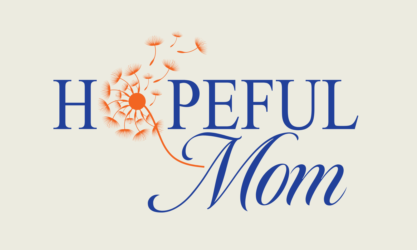 I am a mom of four and have been homeschooling for nineteen years. Over the past two decades I have teetered back and forth on whether parents should tell their children about the birds and the bees. And if they do tell them, what age is appropriate to have “the talk”? In Christian circles you will find a myriad of answers on when and how to expose your children to this subject. The spectrum widens in homeschooling circles because, as home school families, we have slightly more control over their environment. But let’s not kid ourselves; no amount of sheltering short of never leaving the house and having zero access to a TV or computer or phone will keep our children from hearing about sex. And if we think we can keep our kiddos from hearing about it, we are only deceiving ourselves.
I am a mom of four and have been homeschooling for nineteen years. Over the past two decades I have teetered back and forth on whether parents should tell their children about the birds and the bees. And if they do tell them, what age is appropriate to have “the talk”? In Christian circles you will find a myriad of answers on when and how to expose your children to this subject. The spectrum widens in homeschooling circles because, as home school families, we have slightly more control over their environment. But let’s not kid ourselves; no amount of sheltering short of never leaving the house and having zero access to a TV or computer or phone will keep our children from hearing about sex. And if we think we can keep our kiddos from hearing about it, we are only deceiving ourselves.
So, for me, the questions were: When and how much do I tell my children? Our family chose to read age-appropriate biblical-based books to our children, beginning around age seven. We took the approach of Corrie ten Boom’s father. He told her, “Some knowledge is too heavy for children.” We divulged only general information at first, adding more specifics as they reached puberty.
Fifty years ago this knowledge would have been enough; but, now, we have the added burden of determining when to talk about pornography. Do we even use that word? Do we explain explicitly what it is and how to find it? Do we just state, “It’s bad,” and leave it at that?
I realize I am interacting with parents who are past that stage — beyond the should I or shouldn’t I question. However, is it still important to continue the discussion even when we think it may be too late? The answer is a resounding yes. But, again, how in-depth do we go? That is for each parent to discern on his/her own. I can only speak from my experience.

My son responded to a talk he heard while at youth group. The youth leaders separated the guys and girls, male leaders speaking with the guys and female leaders speaking with the girls. The male youth leaders openly and honestly elaborated about their exposure to pornography and how it affected their lives. One of them explained how it ruined his parents’ marriage and the relationships in the family. My son internalized this information and recognized how his behavior could wreck his future. It was at this point he confessed to us for the second time and sincerely pursued freedom from his addiction.
I have changed my mind about when (as a society) to tell our children about pornography and how much to say. It’s becoming more apparent we need to be forward-thinking and present realistic facts and figures to our children as soon as they are able to process the information. Again, each parent needs discernment; but, it’s time we stop looking the other way or thinking My child would never do that. We teach our children to lock the doors at night and not to talk to strangers. So why not teach them how to protect themselves from the adverse effects and consequences of pornographic use?
We should also inform them that many of the women in pornographic media are victims of sex trafficking and the sex trade, performing against their will. This fact alone makes me sad and angry, and I want others, especially my children, to understand that pursuit of pornographic images contributes to this horrific business. At some point we asked our son how he would feel if his sister was one of those victims. We weren’t trying to make him feel guilty; rather, we wanted to put it in perspective and help him pull away from the magnetic draw of pornography.
On the flip side, we should encourage them that there is a proper time and place for sex. It should be beautiful. God intends it for good, and it is a rewarding experience when we follow His statutes regarding sex. And the benefits are so much better if we stay within the confines He established.
It’s never too late to talk with our children. They hear so much outside of the home. Let’s educate them inside the home, too. Let me encourage you to start an open dialogue with your children. Begin the difficult conversation and keep the door open. Invite your children to come to you with tough questions and remind them you are on their side.
What are your thoughts? I encourage you to comment below . . . anonymously if you prefer. Or send me an email via the contact page. And be sure to subscribe so you know when the next blog post is available.
About the author
Barb Winters is the author of Sexpectations: Helping the Next Generation Navigate Healthy Relationships and founder of Hopeful Mom. She’s a certified mental health coach and offers one-on-one consultations for parents. For more about Barb, click "About" in the menu.



4 Replies to “Difficult Conversations: Talk About the Effects of Pornography”